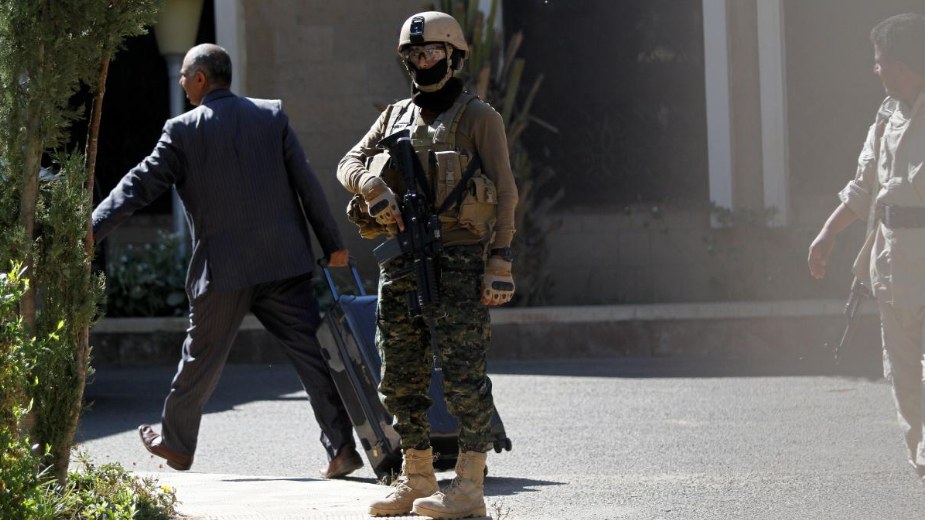
Politics
15:30, 09-Dec-2018
Yemen's rival negotiators in Sweden agree to exchange files of war prisoners
Updated
14:45, 12-Dec-2018
CGTN

Yemen's rival negotiators in the UN-sponsored peace talks in Sweden agreed on Saturday to exchange files of war prisoners as debates are underway over the re-opening of Sanaa airport, Houthi-run Sam FM Radio station reported.
"We agreed today (with the government representatives) to exchange files of war prisoners and that each side will submit the files to the UN envoy Martin Griffiths tomorrow (Sunday)," Sam FM quoted Abdulkadir al-Murtadha, director of Houthi rebel Prisoners' Committee in the Sweden talks, as saying.
Meanwhile, Houthi-run al-Masirah TV reported that the head of the Houthi negotiators Mohammed Abdulsalam discussed a set of issues during his meeting with the head of the government negotiators Khaled al-Yamani.
The face-to-face meeting on Saturday between the heads of the rival negotiators was the first of its kind since the peace talks began three days ago on the outskirts of Sweden's capital Stockholm, according to al-Masirah channel.
The reduction of hostilities, the exchange of war prisoners, the economy, and particularly the reopening of Sanaa airport and Hodeidah seaport, are the main issues of the ongoing negotiations.
On re-opening Sanaa International Airport, a government official told Xinhua on Friday that the airport "must be placed under the government supervision, including the inspection of planes arriving at and departing from Sanaa."
On Saturday, the government negotiators insisted that all flights from or to the rebel-held Sanaa airport must be inspected in the government-run Aden airport or Sayoun airport, according to the government-run Yemen TV.
However, Mohammed Abdulsalam, head of Houthi negotiators, rejected the proposal.
"The airports in Aden and Sayoun have been under Saudi and UAE occupation forces ... We, in return, proposed to place Sanaa airport under direct supervision by the United Nations," Abdulsalam was quoted by al-Masirah TV as saying.
Mohammed Ali al-Houthi, head of Houthi rebel Revolutionary Committee in Sanaa, threatened on Thursday to "close the Sanaa airport for all international flights, including the UN aid flights" if the peace talks failed to re-open Sanaa airport.
For the Red Sea port city of Hodeidah, Abdulsalam said his team suggested Hodeidah be kept as a "neutral zone apart from the conflict and to be placed under the United Nations supervision."
He said his group "would withdraw all fighters from Hodeidah if the other side withdraws its troops."
The government negotiators also rejected the rebel's proposal, citing its contradiction with the UN Security Council Resolution 2216, which only authorizes the legitimate government to fully control all Hodeidah ports and revenues.
Hodeidah, the hot spot of the current Yemeni civil war, is the main entry point of Yemen's most commercial imports and aid.
In March 2015, Saudi Arabia led an Arab military coalition that intervened in the Yemeni conflict to restore the government of President Abd-Rabbu Mansour Hadi after the Houthi rebels forced him into exile in the Saudi capital of Riyadh.
Nearly four years of the war has pushed most of the 28 million people in Yemen to the brink of famine, according to UN aid agencies.
(Cover: A security stands guard during the departure of UN envoy to Yemen Martin Griffiths at Sanaa airport, December 4, 2018. /Reuters Photo)
Source(s): Xinhua News Agency

SITEMAP
Copyright © 2018 CGTN. Beijing ICP prepared NO.16065310-3
Copyright © 2018 CGTN. Beijing ICP prepared NO.16065310-3